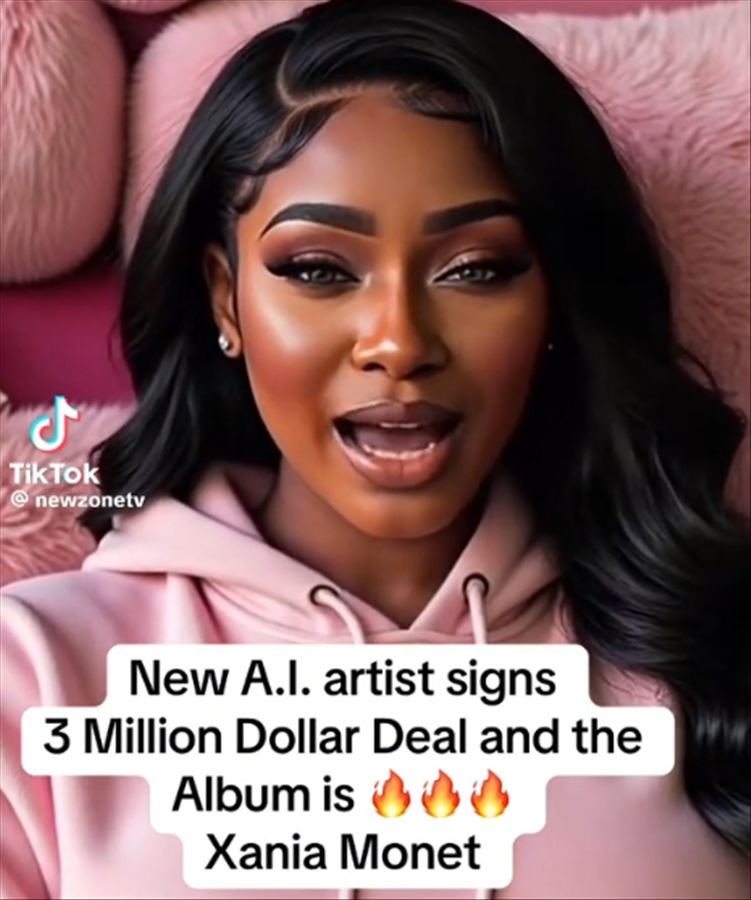AI Music: Just Scored a $3M Record Deal (And What That Means for You)
Let me break this down in AI music style:
A human artist just used an AI platform to create a virtual R&B singer named Xania Monet—and landed a $3 million record deal. That’s not a typo.
Three. Million. Dollars.
This isn’t some sci-fi fantasy.
It’s happening right now.
Telisha “Nikki” Jones, a real-life songwriter, teamed up with Suno (an AI music generator currently being sued by the RIAA) to build Monet’s voice, look, and sound.
She writes the lyrics, feeds them into the machine, and out comes a chart-topping hit.
One of Monet’s songs hit #1 on Billboard’s R&B Digital Song Sales and blew up on TikTok with over 80,000 posts.
Now here’s the kicker:
Monet isn’t real. Her videos? AI-generated.
Her voice? Synthesized.
Her fans? Real people who either don’t know—or don’t care—that she’s not human.
So What’s the Big Deal?
This is a classic case of disruption meets opportunity. While legacy music labels are busy filing lawsuits, smart creators are using AI to bypass gatekeepers and build audiences from scratch.
Jones didn’t need a million-dollar studio or a viral co-sign.
She needed a laptop, a vision, and the guts to ride the wave.
And it’s not just her. Hallwood Media also signed imoliver, Suno’s top-streaming creator. The AI music revolution is officially underway.
But Wait—Isn’t This Illegal?
That’s where it gets messy. The RIAA claims Suno “stream-ripped” songs from YouTube music to train its models.
Translation: they allegedly stole copyrighted material to build their tech.
Lawsuits are flying from every direction—writers, artists, even Disney and The New York Times are suing AI companies for using their work without permission.
So yeah, the legal landscape is a minefield. But while the courts figure it out, creators are cashing in.
AI Music Revolution
Major publishers, newspapers, and studios are also taking legal action against AI firms for using their content without consent. The courts will eventually shape the rules, but litigation moves slower than market momentum. That means a brief but real window exists where creators can experiment, build audiences, and monetize before the music industry fully adapts.
- Use leverage, not resources. A laptop plus an AI tool replaced expensive production and traditional industry connections in this case.
- Build first, justify later. Jones created a market for a virtual artist; labels then validated the demand with investment.
- Treat virality like a channel, not a miracle. Monet’s songs hit TikTok and Billboard because they were designed to be shareable and catchy, then amplified with consistent posts and audience engagement.
AI is a multiplier for anyone who relies on creative output. Marketers can generate high-quality ad assets and test creative at scale.
Writers can use AI to ideate hooks and outlines, then add human originality to stand out.
Entrepreneurs can model customer experiences and prototype products faster than ever. The principle is simple: use AI to reduce friction and amplify unique human decisions that machines can’t replicate.
- Prototype an AI-powered product or persona. Build a simple demo and publish it to social platforms to measure real demand.
- Run micro-tests for virality. Create 5 short-form videos highlighting one big idea and track which formats or hooks get the most shares.
- Lock in a small monetization funnel. Offer a low-friction product or subscription that turns attention into revenue before rules change.
- Document provenance and rights. Keep clear notes on how any AI output was created and what source material (if any) was used to minimize future legal headaches.
There’s a reputational trade-off in adopting AI early. Some audiences care deeply about authenticity and human artistry. Others only care about the quality of the output and the story you tell. Decide where your audience lives on that spectrum and be transparent when necessary. If your brand depends on human craft, position AI as a tool in service of the craft rather than the artist itself.
Expect more virtual artists, more legal battles, and a new class of creators who turn AI-generated work into real-world revenue. Labels will adapt by signing AI-native creators or by demanding stricter usage and licensing terms. Meanwhile, creators who treat AI as leverage and who test fast will capture outsized gains while the market is still fluid.
This isn’t just about a single $3 million deal. It’s a signal: the cost of making market-ready creative work just collapsed, and attention still pays.
Act quickly, but smartly: prototype, validate, monetize, and protect your rights. If you wait for the law to catch up, you’ll lose first-mover advantage. Ride the wave now, and build systems that survive when the rules inevitably change.
Businesses and writers are not going to wait for new laws.
Speed is cash and AI music is singing to the tune of the cash register!
What You Should Take Away...
This isn’t just about music or AI music.
It’s about leverage.
AI is giving everyday people tools that used to be locked behind million-dollar doors.
Whether you’re a musician, marketer, or entrepreneur, the question isn’t if AI will change your industry—it’s how fast you’ll adapt.
Jones saw the wave coming and jumped on it. You can either watch from the shore—or grab a board and ride it.
As a writer and creator what should I do?
Use AI to write my blog posts and articles, use AI to create images and videos or be left behind and crushed by the competitors?
To survive or not to survive!
Can I use expired copyrighted poetry to create songs with Suno AI?
I'll keep on writing but use AI to help me with ideas and some text for now..
